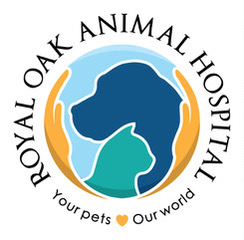Library
-
There are many environmentally friendly ways that owners can care for their pets. Waste disposal can involve biodegradable or compostable bags or careful composting. Cat litter can be transitioned to recycled newspaper or sawdust pellets. Any toys, beds, houses and other accessories can be biodegradable and/or recycled such as cotton or rubber. Cats should be kept indoors to reduce their impact on the ecology of their surrounding environment. A nutritionally adequate diet composed of organic food can be provided.
-
Acute kidney injury (AKI) refers to the sudden failure of the kidneys to perform normal filtration duties (previously referred to as acute renal failure). The clinical signs, potential causes, diagnosis, treatment, and prognosis of this condition are outlined in this handout.
-
Addison’s disease, also known as hypoadrenocorticism, is a condition in which the adrenal glands do not produce enough glucocorticoids (steroids) and is considered rare in cats. When normal adrenal gland tissue is destroyed, cats often have a history of waxing and waning periods of lethargy, decreased appetite, and weight loss.
-
An adrenal cortex tumor is an abnormal growth of cells in the adrenal cortex. These tumors result in overproduction of cortisol and can be malignant (cancerous) or benign. In both cases, an adrenal cortex tumor can cause Cushing's disease in dogs. Malignant tumors can metastasize to other organs, including the kidneys, lymph nodes, and thyroid gland. The sooner a diagnosis and treatment plan can be determined, the better the outcome for your pet.
-
The adrenal medulla is responsible for producing hormones such as epinephrine, norepinephrine, and dopamine. An adrenal medulla tumor is the result of abnormal, uncontrolled growth of the cells that produce these hormones. These tumors may go undetected for a long time and clinical signs may be subtle. These signs could include weakness, excessive panting and restlessness, newly noted anxiety, and an increase in drinking and urination. The biggest concern with these tumors is their ability to continue to grow and invade local tissues, which can make surgical removal difficult or impossible.
-
An allergy occurs when the cat's immune system overreacts or is hypersensitive to foreign substances called allergens. There are four main types of allergies in cats, namely flea allergy, atopic dermatitis (atopy), food allergy, and contact allergy. They share common physical expressions and signs in cats, and each has unique features.
-
Anisocoria is a condition in which the pupils of the cat's eyes are different sizes. Anisocoria is a symptom of an underlying condition or disease that needs to be identified and treated. Prognosis is guarded pending the diagnosis and treatment. Blindness may occur as a result of the underlying condition.
-
Aortic stenosis is a heart disease that is present at birth. Cats affected with aortic stenosis have a narrowing at the aortic valve of the heart. The clinical signs of aortic stenosis vary depending on how severe the stenosis is; some cats remain asymptomatic throughout their life, while other cats begin showing clinical signs at an early age and can experience sudden death. The treatment of aortic stenosis depends upon the severity of the condition.
-
Applying eye ointments to your cat's eye(s) can be a challenging or easy task. The proper administration of eye medications is essential for your cat's prompt recovery. It is important to use the medication as directed for the full duration and contact your veterinarian if you have problems. The tips and instructions in this handout may make administering your cat's eye ointment easier.
-
Applying topical medications to your pet can sometimes be a challenge. Creams, ointments, and lotions are for external use only. It is important to prevent your cat from licking and swallowing any of these external preparations as they may contain ingredients that could be harmful if swallowed. Most topical preparations work better if they are gently massaged in for a few moments after application. It is always a good idea to get someone to help hold your cat, especially when applying medications on a sensitive or painful area. If you still have trouble keeping your pet from licking the medication, please contact your veterinarian to get your cat fitted for an Elizabethan collar.


